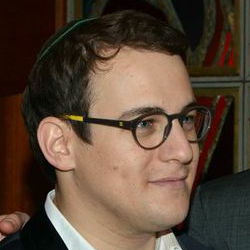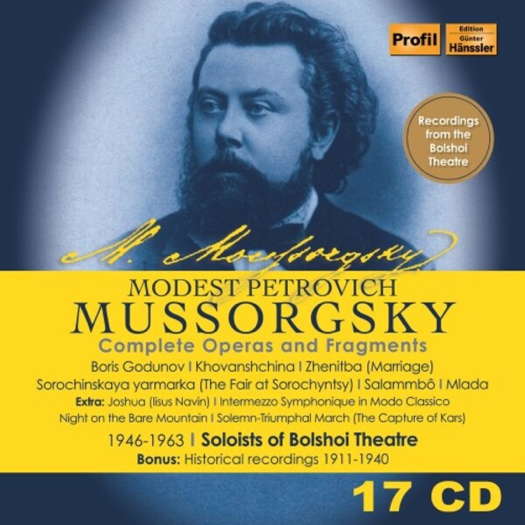 SPONSORED: Ensemble. Melting Rhapsody - Malcolm Miller enjoys Jack Liebeck and Danny Driver's 'Hebrew Melody' recital, plus a recital by David Aaron Carpenter.
SPONSORED: Ensemble. Melting Rhapsody - Malcolm Miller enjoys Jack Liebeck and Danny Driver's 'Hebrew Melody' recital, plus a recital by David Aaron Carpenter.
All sponsored features >>
 DISCUSSION: What is a work? John Dante Prevedini leads a discussion about The performing artist as co-creator, including contributions from Halida Dinova, Yekaterina Lebedeva, Béla Hartmann, David Arditti and Stephen Francis Vasta.
DISCUSSION: What is a work? John Dante Prevedini leads a discussion about The performing artist as co-creator, including contributions from Halida Dinova, Yekaterina Lebedeva, Béla Hartmann, David Arditti and Stephen Francis Vasta.
- Mannes College of Music
- Beethoven Piano Society
- Pascal Rogé
- Georg Katzer
- Stefan Wojtas
- Chamber Orchestra of Europe
- Giovanni Maria Bononcini
- Anne-Sophie Mutter

A Treasure for Posterity
Complete operas and fragments by Modest Musorgsky, heard by GERALD FENECH
'This is a unique musical document of inestimable historic value and staggering interpretative beauty.'
Maybe the greatest Russian composer of all time, Modest Mussorgsky was born on 21 March 1839 in Karevo, some kilometres from St Petersburg. His love for music was evident at an early age, and when about six he started piano training with his mother. A year later, he was already playing pieces by Franz Liszt, and in 1849 his father sent him to St Peter's School to further his piano and general education. In 1852 he joined the Imperial Guards Cadet School, where he met Alexander Borodin, a medical officer. In 1856, through the intervention of a fellow soldier, he met Alexander Dargomyzhsky, where, at one of the latter's soirees, Mussorgsky made the acquaintance of Mily Balakirev, who gave important music lessons to the upcoming artist. It was also about this time that Mussorgsky discovered the works of Mikhail Glinka, something that fired up the composer to write purely Russian music that was free from the shackles of Western composers, who up till then were extremely popular in many Russian theatres. With the abolition of serfdom in 1861, Mussorgsky's family lost its primary income, and this development led the composer to take up a job at the Ministry of Communications as a civil servant. In 1865 his mother died and this led Mussorgsky to become an alcoholic. Eventually it was this uncontrolled urge for drink that finally killed him on 28 March 1881, just seven days short of his forty-second birthday.
Mussorgsky was mainly self-taught in his style and artistry, and throughout his career he embarked on several operatic projects, but his emotionally unstable character prevented him from finishing any of them. Indeed, he always lost interest midway through the compositions. A highly important group known as the 'Big Five' started taking shape in 1856 with the first meeting of Mily Balakirev and Cesar Cui. Mussorgsky joined them in 1857, Nikolai Rimsky-Korsakov in 1861 and Alexander Borodin in 1862. Spurred on by Russian nationalist ideas, the 'Five' sought to capture elements of rural Russian life, to build national pride and to prevent western ideals from seeping into their culture. Success was limited, mainly because of stiff opposition from local critics and fellow composers, and by 1870 the group started to disintegrate, leaving Mussorgsky to forge ahead on his own. Indeed, there is not one score that can be considered as truly complete, but what Mussorgsky left behind is a treasure for posterity.
Listen — Musorgsky: Intermezzo (Sorochintsy Fair)
(CD 15 track 4, 0:03-0:58) © 2021 Profil Medien GmbH :
His musical style is irrevocably Russian and intently speaks of its peasants, folk tunes and supernatural legends, but above all, of its history. With a view to expressing the Russian soul, steeped in peasantry and harsh winters, his music is deliberately raw in tone. To make it more accessible it needed an expert hand to smooth the roughness of the music, and here an ex-member of the 'Five' took upon himself the task of re-orchestrating, correcting and editing most of the works that were left unfinished. That man was Rimsky-Korsakov. It is mainly thanks to him that one can really appreciate the greatness of Mussorgsky's musical vision. Subsequently, other composers took it upon themselves to try and emulate Rimsky-Korsakov. Shostakovich and Ravel come readily to mind, so now we have different versions of many of the pieces. Judging by the outcome of things, we can count ourselves lucky to have such a broad perspective of Mussorgsky's output. Indeed, it is through the revisions of these composers that Mussorgsky's reputation has been enhanced among musical circles and enthusiasts alike.
Listen — Musorgsky, arranged by Shostakovich: Prelude (Boris Godunov)
(CD 4 track 1, 0:01-0:53) © 2021 Profil Medien GmbH :
This enthralling set is an artistic and engineering marvel, if only for bringing together under one roof, so to say, the very essence of Russia's turbulent soul, and the triumph of its artistic achievements in the face of adversity. Listening to this music is not just enjoying your Mussorgsky, but synchronizing your heartbeats with those of a nation that is still shrouded in mystery. That is why so many still feel fascinated by everything that is Russian, myself included.
Listen — Musorgsky: Prelude (Khovanshchina)
(CD 7 track 1, 0:01-0:58) © 2021 Profil Medien GmbH :
This collection includes two versions of Boris Godunov and Khovanshchina, respectively in Rimsky-Korsakov's and Shostakovich's reworkings, and fragments from The Marriage, The Fair at Sorochyntsy, Salammbo and Mlada.
Listen — Musorgsky: Solemn Triumphal March (Mlada)
(CD 16 track 9, 0:00-0:58) © 2021 Profil Medien GmbH :
There is also a CD dedicated to Feodor Chaliapin singing arias from Boris Godunov across a period of twenty years (1911-1931).
Listen — Musorgsky: Death of Boris and Finale (Boris Godunov)
(CD 17 track 17, 0:01-0:57) © 2021 Profil Medien GmbH :
This is a unique musical document of inestimable historic value and staggering interpretative beauty. It's simply mesmerizing on all levels.
Copyright © 13 October 2021
Gerald Fenech,
Gzira, Malta

CD INFORMATION - MUSSORGSKY: COMPLETE OPERAS AND FRAGMENTS
MORE CLASSICAL MUSIC ARTICLES ABOUT RUSSIA


